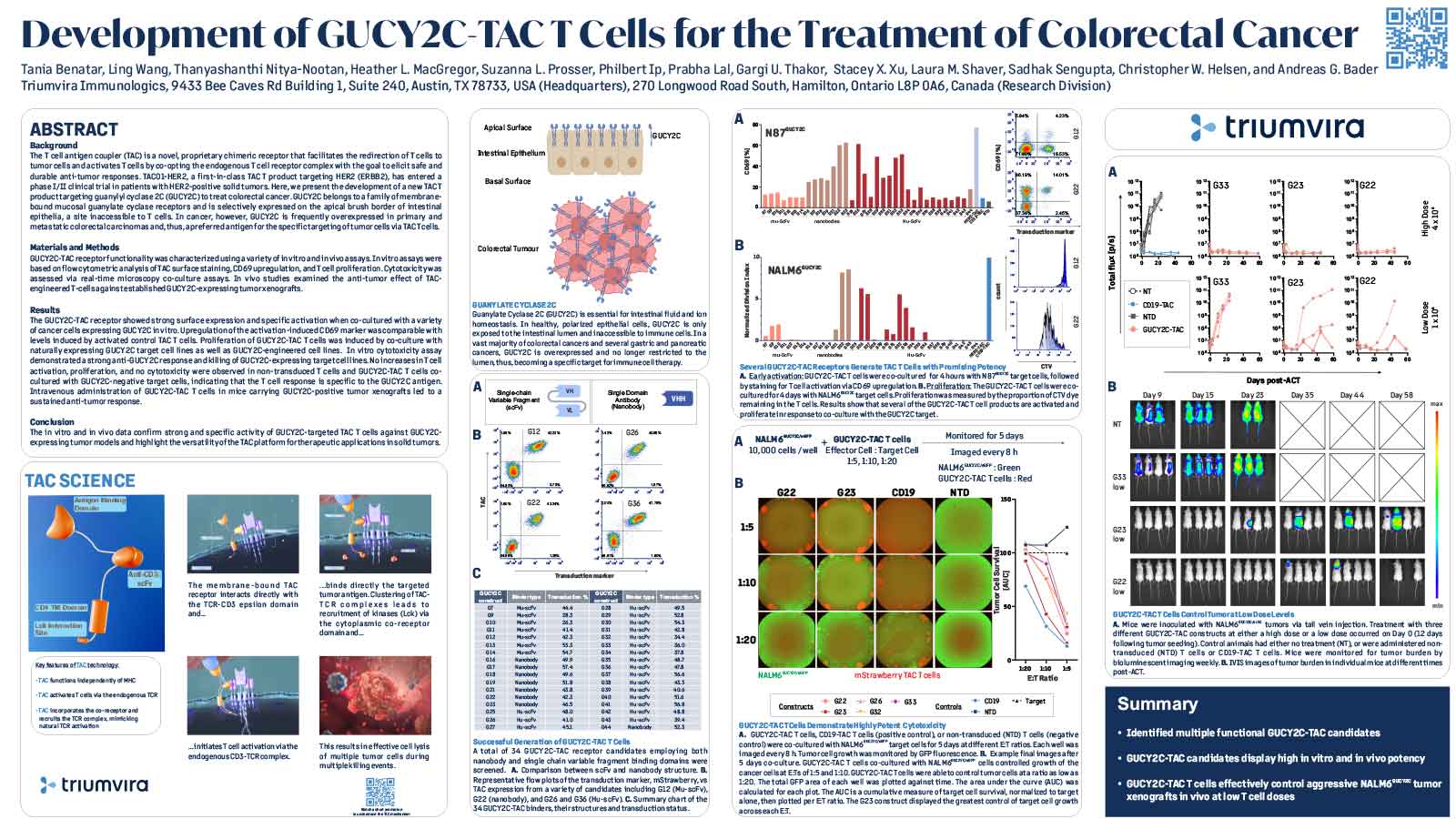ABSTRACT
Background
The T cell antigen coupler (TAC) is a novel, proprietary chimeric receptor that facilitates the redirection of T cells to tumor cells and activates T cells by co-opting the endogenous T cell receptor complex with the goal to elicit safe and durable anti-tumor responses. TAC01-HER2, a first-in-class TAC T product targeting HER2 (ERBB2), has entered a phase I/II clinical trial in patients with HER2-positive solid tumors. Here, we present the development of a new TAC T product targeting guanylyl cyclase 2C (GUCY2C) to treat colorectal cancer. GUCY2C belongs to a family of membrane-bound mucosal guanylate cyclase receptors and is selectively expressed on the apical brush border of intestinal epithelia, a site inaccessible to T cells. In cancer, however, GUCY2C is frequently overexpressed in primary and metastatic colorectal carcinomas and, thus, a preferred antigen for the specific targeting of tumor cells via TAC T cells.
Materials and Methods
GUCY2C-TAC receptor functionality was characterized using a variety of in vitro and in vivo assays. In vitro assays were based on flow cytometric analysis of TAC surface staining, CD69 upregulation, and T cell proliferation. Cytotoxicity was assessed via real-time microscopy co-culture assays. In vivo studies examined the anti-tumor effect of TACengineered T-cells against established GUCY2C-expressing tumor xenografts.
Results
The GUCY2C-TAC receptor showed strong surface expression and specific activation when co-cultured with a variety of cancer cells expressing GUCY2C in vitro. Upregulation of the activation-induced CD69 marker was comparable with levels induced by activated control TAC T cells. The proliferation of GUCY2C-TAC T cells was induced by co-culture with naturally expressing GUCY2C target cell lines as well as GUCY2C-engineered cell lines. In vitro cytotoxicity assay demonstrated a strong anti-GUCY2C response and killing of GUCY2C-expressing target cell lines. No increases in T cell activation, proliferation, and no cytotoxicity were observed in non-transduced T cells and GUCY2C-TAC T cells cocultured with GUCY2C-negative target cells, indicating that the T cell response is specific to the GUCY2C antigen. Intravenous administration of GUCY2C-TAC T cells in mice carrying GUCY2C-positive tumor xenografts led to a sustained anti-tumor response.
Conclusion
The in vitro and in vivo data confirm a strong and specific activity of GUCY2C-targeted TAC T cells against GUCY2C-expressing tumor models and highlight the versatility of the TAC platform for therapeutic applications in solid tumors.

